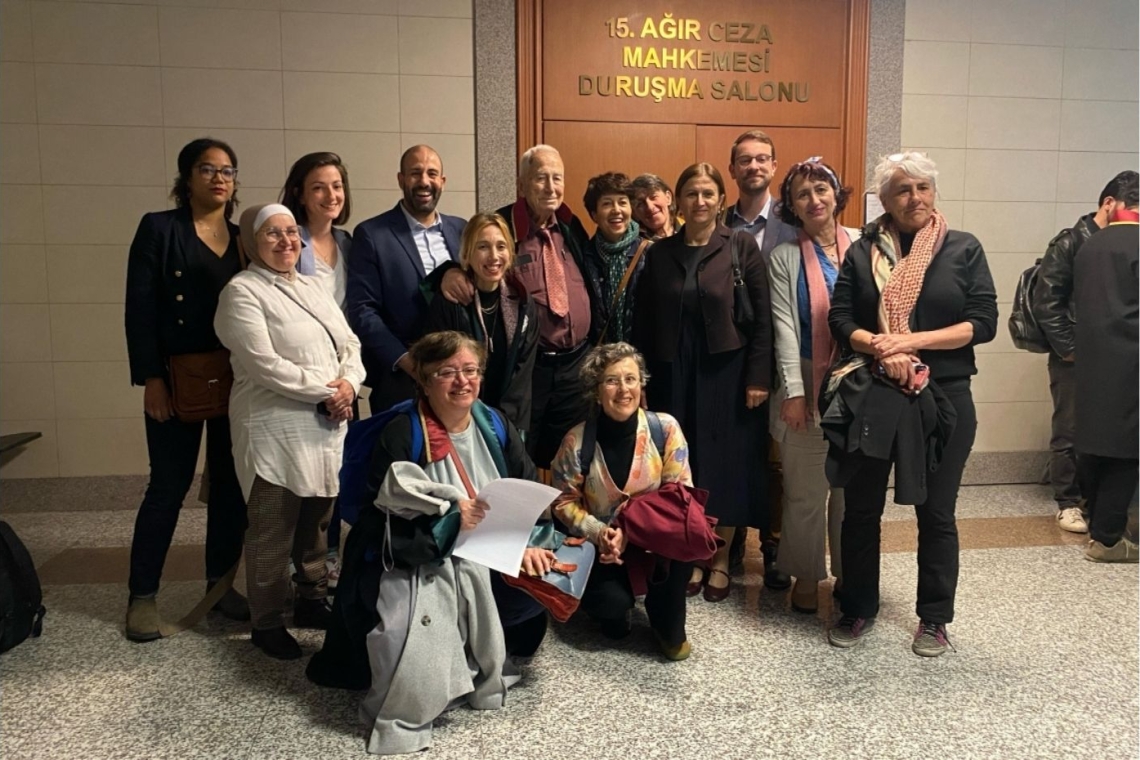Rabia Çetin
The retrial of sociologist and writer Pınar Selek, whose fourth acquittal in connection with the 1998 Istanbul Spice Bazaar explosion was overturned by Turkey’s Court of Cassation, was postponed Friday after a five-minute hearing at the Istanbul 15th High Criminal Court.
The hearing, which was scheduled to begin at 10:30 a.m., started roughly 45 minutes late. Despite restrictions on the number of spectators allowed in the courtroom, representatives from the French and Swiss consulates, French lawyers, academics, journalists, civil society groups, the Hala Tanığız Platform, activists, CHP Istanbul lawmaker Türkan Elçi, Selek’s attorneys, and numerous lawyers from the Istanbul Bar Association were present.
During the hearing, Selek’s lawyers requested that outstanding procedural issues in the case file be addressed before proceeding.
The court issued its decision in five minutes, ruling to uphold the previously issued arrest warrant for Selek and to await the ongoing red notice process. The judges also rejected a request to lift the arrest warrant against co-defendant Abdülmecit Öztürk. The next hearing is scheduled for Friday, Oct. 21, at 10:45 a.m.
Background
The case stems from a July 1998 explosion at Istanbul’s historic Spice Bazaar that killed seven people. Selek, who has faced prosecution for more than two decades over the incident, has been acquitted four times, but each acquittal was overturned by the Court of Cassation.
Expert reports prepared throughout the investigation consistently concluded that the explosion was caused by a gas leak, not a bomb. Additionally, the co-defendant who initially implicated Selek in a bomb plot later testified that his confession was extracted under torture and that he did not know Selek personally.
In 2014, Selek was acquitted once again, but in 2022, the Court of Cassation’s General Assembly of Criminal Chambers annulled the decision, ruling that Selek should be sentenced to aggravated life imprisonment. This led to the reopening of the case for a sixth time.
Selek currently faces charges of "attempting to separate part of the state's territory from its sovereignty," "possessing or transferring dangerous substances without permission," and "membership in an illegal armed organization."
Selek has been living in exile in France for several years, and the case has drawn widespread attention both within Turkey and internationally, with human rights groups and academic communities criticizing the repeated prosecutions as politically motivated.



